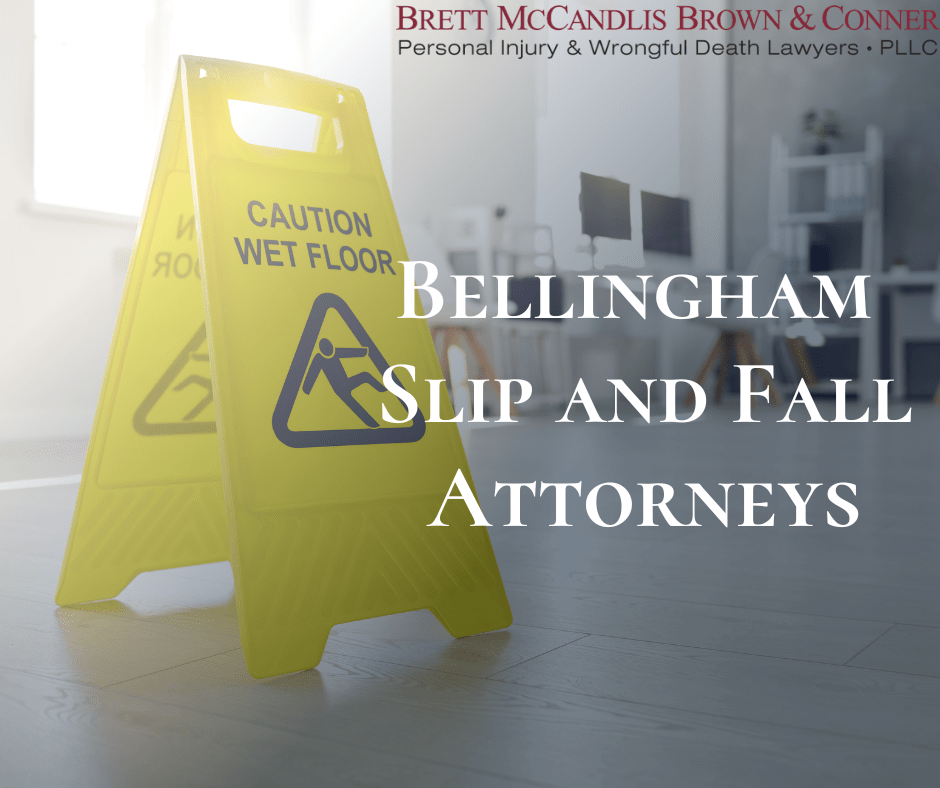Slip and fall accidents are often avoidable when property owners and managers take reasonable precautions to ensure the safety of those on their premises. Unfortunately, that is not always the case. If you or someone you know has experienced a slip and fall accident due to someone else’s negligent action or inaction, it is important to speak with a Bellingham slip and fall lawyer who can help you understand your legal rights and the compensation you may be entitled to receive.
What is Premises Liability?

Slip and fall cases fall under the legal doctrine of premises liability, which is a subset of personal injury law. A premises liability case generally exists if a person legally on a property is injured by some condition on the property that was not obvious and should have either had a warning or been mitigated by the property owner. In Washington, property owners have an obligation to reasonably care for their property and the safety of anyone who has permission to visit the property.
Falls are the most common type of premises liability claim. According to the Centers for Disease Control and Prevention (CDC), one in five falls causes a significant injury, such as a broken bone or a head injury. These types of injuries can have lasting consequences like limited mobility, inability to function without assistance, and impact on quality of life.
Types of Premises Liability Cases
There are many types of negligent actions or inactions on business, residential, or government-owned properties that give rise to premise liability cases, including:
- Poorly maintained sidewalks,
- Negligent security,
- Dog or other animal attacks,
- Swimming pool accidents,
- Defective or damaged stairways,
- Toxic fumes or chemicals,
- Elevator accidents,
- Inadequate lighting,
- Supermarket accidents,
- Wet floors without caution signs,
- Snow and ice accidents,
- Fire and safety code violations,
- Ceiling collapse, and
- Amusement park accidents.
There are plenty of other incidents that could fall under this umbrella, so if your claim was not caused by one of these concerns, you should not be deterred from seeking counsel from slip and fall attorneys in Bellingham to determine whether you have a claim.
Who Can File a Slip and Fall Claim in Washington?
Your right to be on the property has a big impact on whether or not you can file a claim for your slip and fall injury. This is often referred to as your “visitor status.” A property owner or occupier may owe you a specific duty of care dependent upon your visitor status.
Business Invitee
Someone who is walking into a grocery store, restaurant, or other public place of business is considered to have been invited onto the property and is therefore an invitee. Owners have an obligation to invitees to keep the property in a reasonably safe condition, which means they must inspect the property for dangerous conditions and correct them. It is also worth noting that Washington business owners owe their customers a duty to protect them from criminal activity that they know or should know is occurring.
Licensees
Someone with the property owner’s implied consent, such as a social guest, is considered a licensee. If an owner or occupier of the property knew or should have known of a dangerous condition and did not take reasonable action to fix it or warn the licensee of the condition, they may be liable for any injuries that result from the dangerous condition.
Trespasser
A trespasser is someone who is on the property without consent or legal right to be there. For instance, a person who enters a property with a “no trespassing” sign is a trespasser. Owners of the property cannot intentionally harm a trespasser but they do not owe them a duty of care.
Slip and fall lawyers in Bellingham can help you determine how these laws apply to your case and who is liable for your injury, whether it is a large corporation, private property owner, the government, or another party.
Duty Owed to Children
Children are handled differently under the law. A landowner or occupier may still owe a duty of care to children, even if they are trespassing, if the property contains an “attractive nuisance.” An attractive nuisance is something that a child might be tempted to play with, like a pool or old playground equipment. A landowner has an obligation to ensure the property is safe if they have an attractive nuisance. If your child was injured on someone else’s property, you may have a valid claim even if they were not invited onto the property.
What If You Were Partially at Fault?
Washington uses the doctrine of comparative fault, which asserts that even if you are partially responsible for the injury, you can still bring a claim against the landowner. The amount of compensation you are awarded will be reduced by the percentage by which you are found at fault. For example, if you are awarded $100,000 but found to be 20 percent at fault, you would receive $80,000. It is important to have an experienced Bellingham slip and fall attorney who can argue against any claims that you were mostly to blame for the accident.
Washington Slip and Fall Statute of Limitations
According to Washington personal injury law, you have three years to bring a slip and fall lawsuit against the negligent party. This period begins from the date the accident occurred. It is important to start your claim as early as reasonably possible to preserve crucial evidence such as witness testimony, documentation, receipts, and images, which can all be easily lost or misplaced over time. Getting the ball rolling quickly also means you are likely to recover the funds you need to care for your injuries sooner.
Contact a Bellingham Slip and Fall Lawyer
The team at Brett McCandlis Brown & Conner has secured multiple slip and fall awards of over one million dollars for our clients, including one record-setting award of six million dollars for a victim who fell due to a poorly lit parking lot.
Accidents do happen, but when they are preventable, you should not be held responsible for someone else’s negligence. Contact Brett McCandlis Brown & Conner to schedule your free case consultation.


